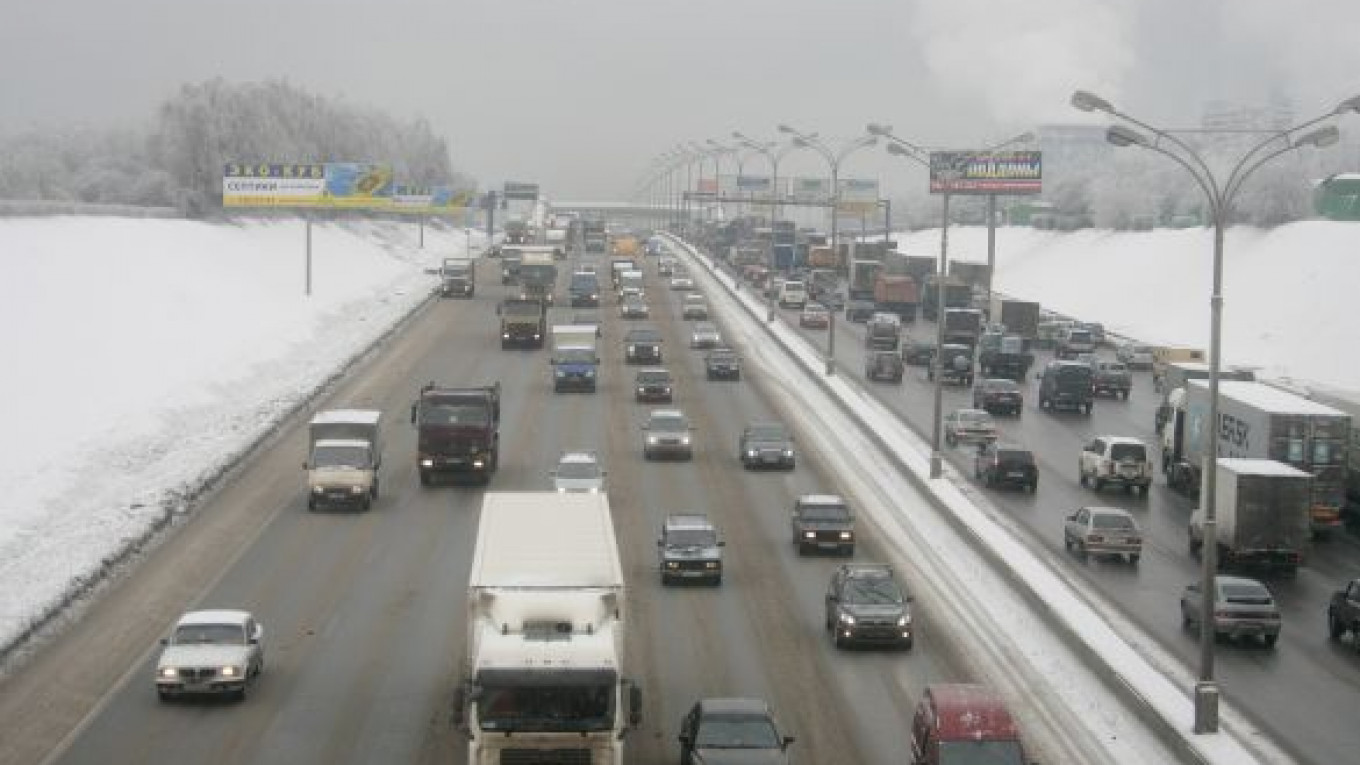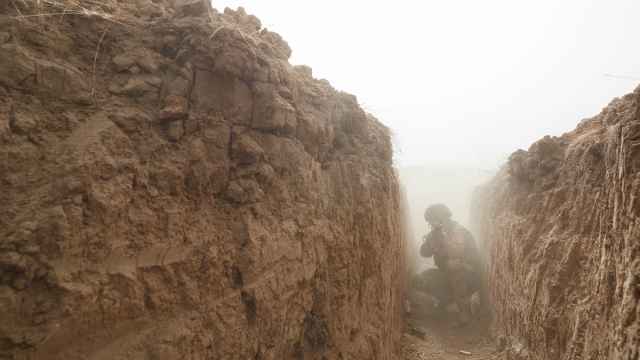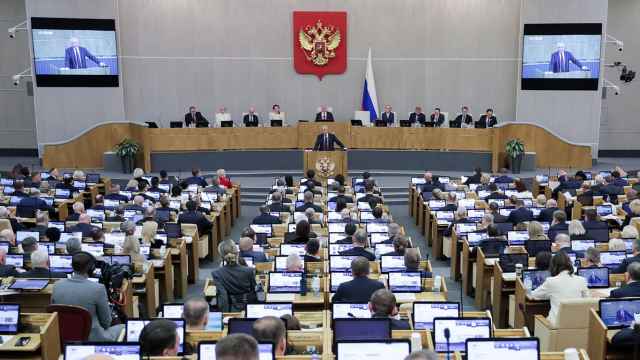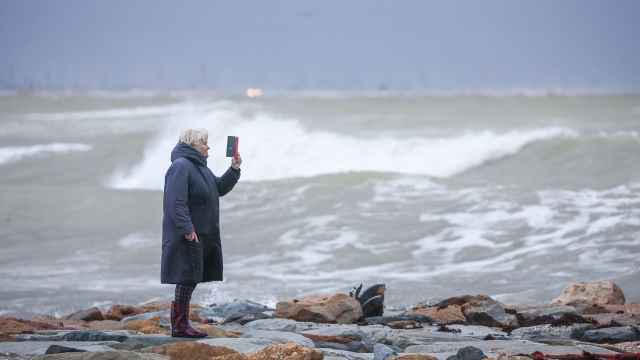The Presidium on Thursday endorsed a joint committee made up of officials from the Transportation Ministry, City Hall and the Moscow region government to coordinate road-building projects, Mayor Sergei Sobyanin said.
The decision formalized the intention of the federal and city governments to act in concert in an effort to improve the traffic situation — an idea that gained traction after Sobyanin took office in October.
"We will coordinate the construction projects of large transportation routes — their capacity and timelines," Sobyanin said at a news conference after the Presidium meeting.
In one of the first joint actions, the committee agreed Thursday to divide responsibility for the congested stretch of Leningradskoye Shosse to Sheremetyevo Airport, he said.
The city will take care of the road from the center to the 29-kilometer mark, while the region will support the rest, he said. The Transportation Ministry will finance the construction of an overpass on the road, he added.
Moscow region Governor Boris Gromov attended the Presidium session, but didn't make any public comments afterward.
The two governments are also studying a plan to develop transportation in and around Moscow before they sit down together to make a decision, Sobyanin said.
The committee will also oversee the creation of a database on incoming and transit cargo traffic to see how authorities could handle it best.
"The flows are enormous," he said. "We aren't completely clear about how much comes in."
In a bid to reduce congestion, the city has successfully negotiated with major malls to shift their delivery schedules to nighttime — a move affecting 4,000 trucks, Sobyanin said. The region is looking for land to set up parking space for the trucks during the daytime, he said.
The city and the region will take a closer look at commuter traffic, both by rail and by bus, Sobyanin said. Moscow, he said, has practically no "civilized" bus stations, a unified system of ticket sales and statistics on bus traffic.
"It's a problem that requires a resolution in the near future," he said.
Both governments will plan on joint construction of roads and overpasses, the mayor said.
Former Mayor Yury Luzhkov frequently bickered with Gromov over many issues, including transportation. City officials used to complain that some wide city roads ended in bottlenecks as they crossed city limits, weakening city efforts to appease motorists.
"Such things must not be allowed to happen," Sobyanin said at the news conference.
Under Sobyanin, City Hall has drawn an ambitious program to spend billions of rubles on building modern roads and extending the metro. The federal government has said such efforts are essential as part of the plan to turn Moscow into a more attractive financial center.
The country's biggest lender, Sberbank, said earlier this week that it acquired a stake in Tsentrstroi, the company that recently bought the city's main contractor for metro construction.
A Message from The Moscow Times:
Dear readers,
We are facing unprecedented challenges. Russia's Prosecutor General's Office has designated The Moscow Times as an "undesirable" organization, criminalizing our work and putting our staff at risk of prosecution. This follows our earlier unjust labeling as a "foreign agent."
These actions are direct attempts to silence independent journalism in Russia. The authorities claim our work "discredits the decisions of the Russian leadership." We see things differently: we strive to provide accurate, unbiased reporting on Russia.
We, the journalists of The Moscow Times, refuse to be silenced. But to continue our work, we need your help.
Your support, no matter how small, makes a world of difference. If you can, please support us monthly starting from just $2. It's quick to set up, and every contribution makes a significant impact.
By supporting The Moscow Times, you're defending open, independent journalism in the face of repression. Thank you for standing with us.
Remind me later.






